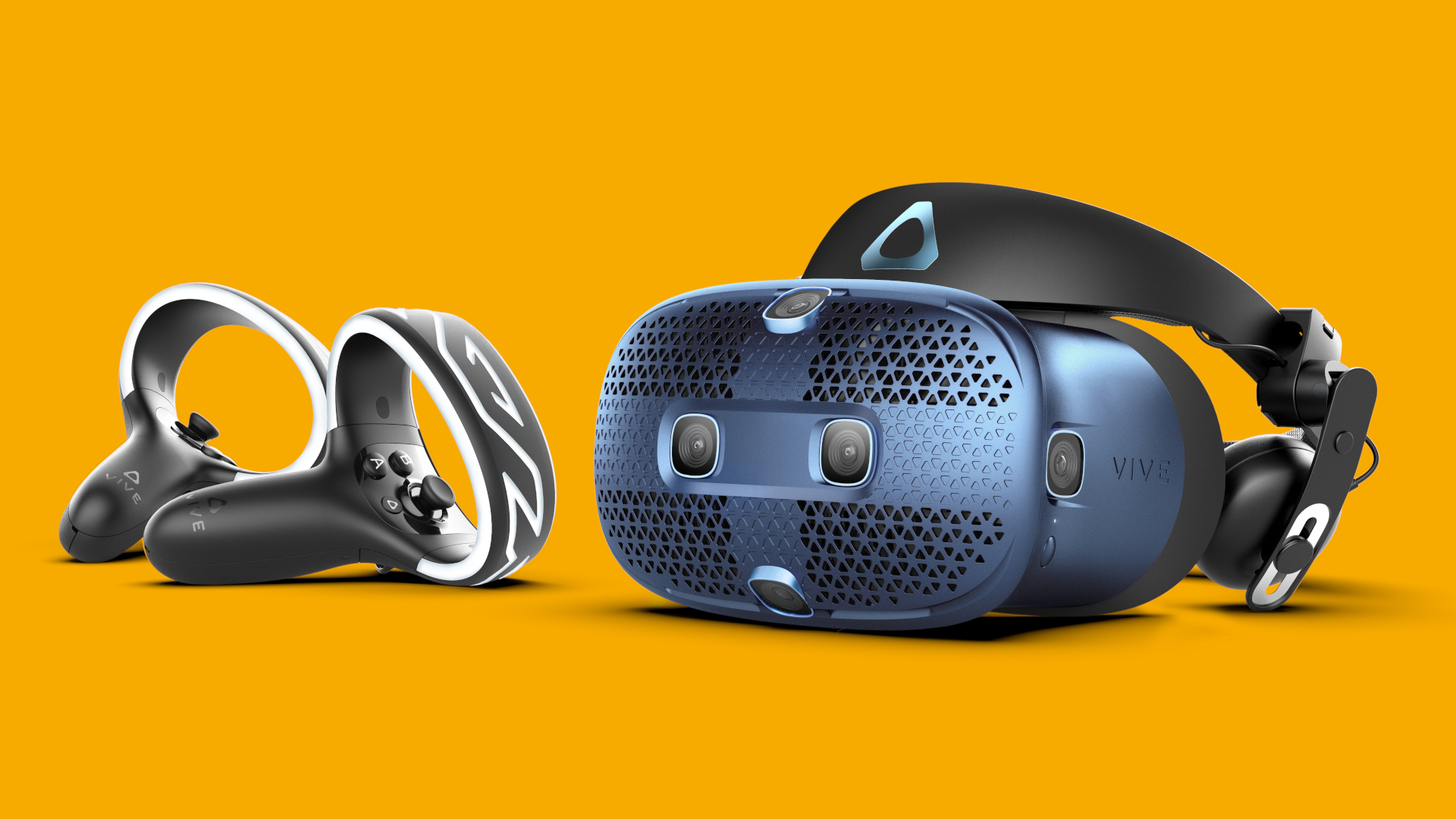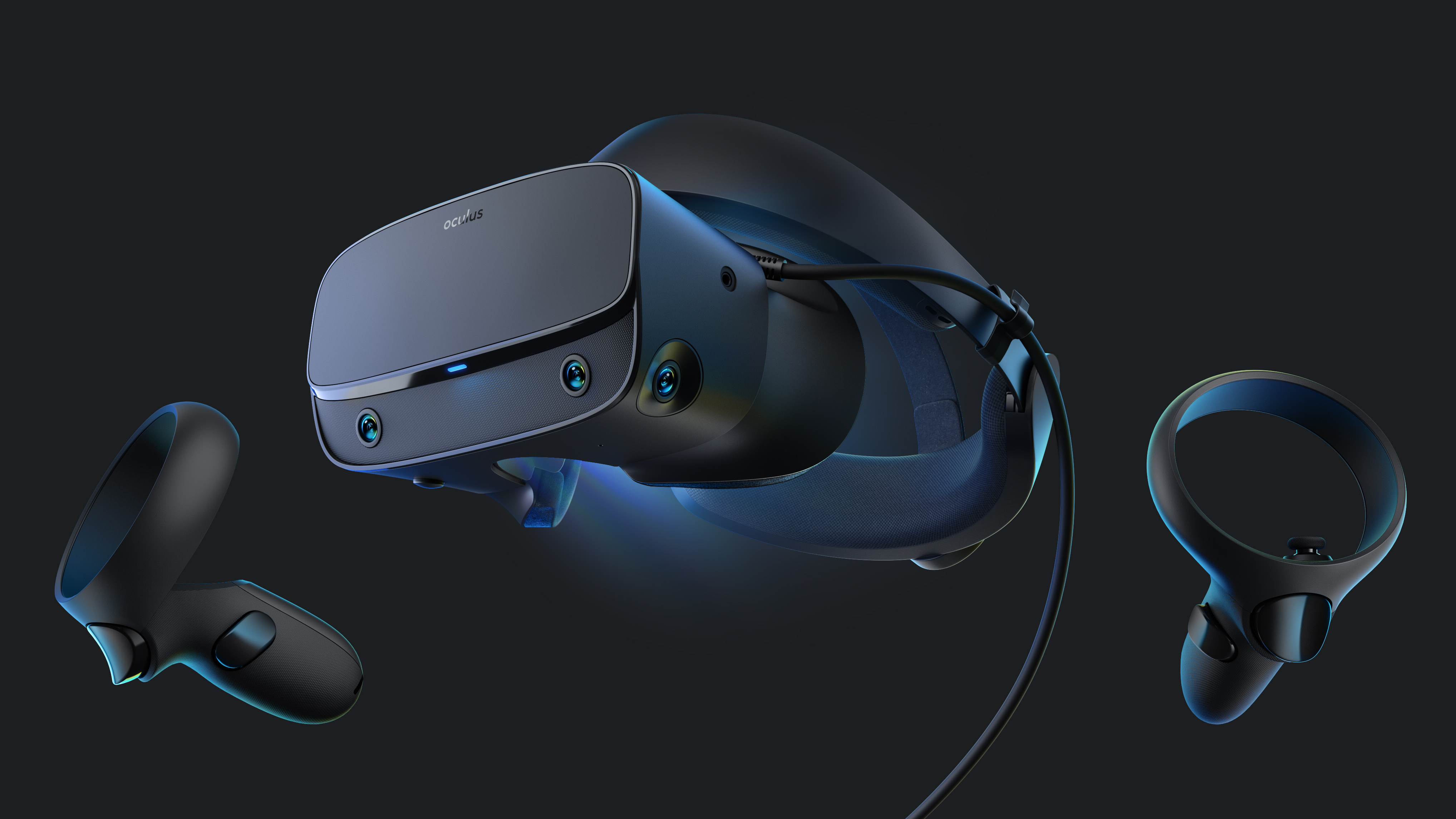HTC Vive Cosmos is coming to take on the Oculus Rift S – but at twice the price

Sign up for breaking news, reviews, opinion, top tech deals, and more.
You are now subscribed
Your newsletter sign-up was successful
HTC has announced that its Oculus Rift S rival - the HTC Vive Cosmos - will be available starting on October 3, 2019 (October 4 in Australia) at a price point of US$699 (£699 / AU$1,299).
The headset made its debut at this year’s CES and is HTC’s fourth headset after original HTC Vive, HTC Vive Pro and the recently released HTC Vive Focus that the company marketed toward enterprise users.
The HTC Vive Cosmos is definitely more gamer-oriented and, on paper at least, stacks up nicely against the Oculus Rift S that was released earlier this year: Neither headset requires the use of external trackers (in HTC's case, base stations), however both require a hardwired connection to a PC to work.
According to specs released by HTC, the Cosmos will feature a 2880 x 1700 combined pixel resolution - an 88% increase over the original Vive which had a 2160 x 1200 resolution - a 90Hz refresh rate and a 110-degree field-of-view.
Even better is that those that pre-order the headset ahead of its October release date will be eligible for a 12-month subscription to Viveport Infinity for free that allows you unrestricted access to over 600 games and apps - a subscription that would usually cost $12.99 per month (around £10, AU$19).

Meet HTC's first 'modular' headset
One aspect that HTC wants to play up before launch is the Cosmos' versatile mod support that will enable new features on the headset in the future.
The first of these mods, called the Vive Cosmos External Tracking Mod, will be available at launch and enables the headset to work with base stations.
Sign up for breaking news, reviews, opinion, top tech deals, and more.
Why would you want your new tracker-less VR headset to be compatible with wired base stations? Well, HTC doesn't exactly say but does allude to the fact that base stations do a better job of tracking the controllers than the headset does on its own - which makes sense given the front-facing orientation of its cameras.
HTC says it will produce more mods for the Cosmos in the future and will release the second module in the first part of 2020.

Going toe-to-toe with the Oculus Rift S
While the HTC Vive Cosmos seems like a big step up from the original Vive that the company released back in June 2016, its biggest challenge is the Oculus Rift S. Oculus' hardware has similar specs, will have access to many of the same games, uses similar inside-out tracking and will appeal to the same audience.
The problem here obviously is that Oculus is selling the Rift S for $399 (£399 / AU$649) while HTC is selling its new headset for almost twice that amount.
Still, despite the substantial difference in price, HTC won over many critics with its original HTC Vive headset despite that costing nearly twice as much as the Rift - a feat it could repeat with the Vive Cosmos.
We'll find out just how well it squares up when the Cosmos releases on October 3.
- Looking to jump into VR? Here's our list of the best VR headsets

Nick Pino is Managing Editor, TV and AV for TechRadar's sister site, Tom's Guide. Previously, he was the Senior Editor of Home Entertainment at TechRadar, covering TVs, headphones, speakers, video games, VR and streaming devices. He's also written for GamesRadar+, Official Xbox Magazine, PC Gamer and other outlets over the last decade, and he has a degree in computer science he's not using if anyone wants it.